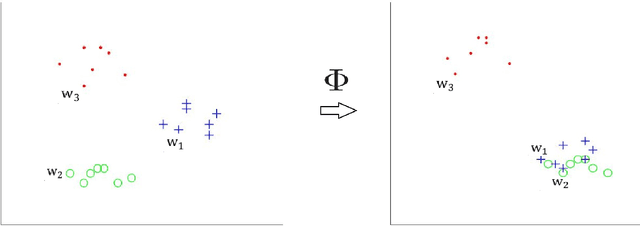Real Multi-Sense or Pseudo Multi-Sense: An Approach to Improve Word Representation
Paper and Code
Jan 06, 2017
Previous researches have shown that learning multiple representations for polysemous words can improve the performance of word embeddings on many tasks. However, this leads to another problem. Several vectors of a word may actually point to the same meaning, namely pseudo multi-sense. In this paper, we introduce the concept of pseudo multi-sense, and then propose an algorithm to detect such cases. With the consideration of the detected pseudo multi-sense cases, we try to refine the existing word embeddings to eliminate the influence of pseudo multi-sense. Moreover, we apply our algorithm on previous released multi-sense word embeddings and tested it on artificial word similarity tasks and the analogy task. The result of the experiments shows that diminishing pseudo multi-sense can improve the quality of word representations. Thus, our method is actually an efficient way to reduce linguistic complexity.
 Add to Chrome
Add to Chrome Add to Firefox
Add to Firefox Add to Edge
Add to Edge